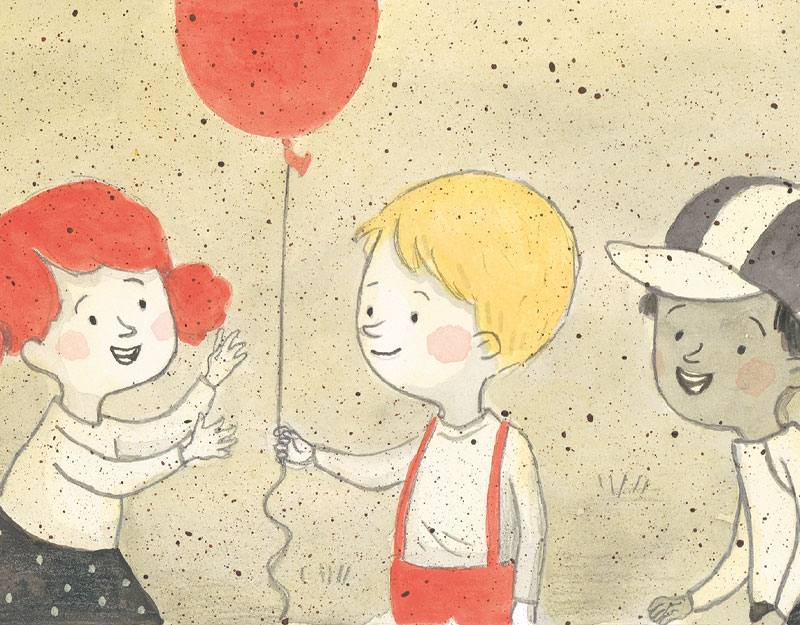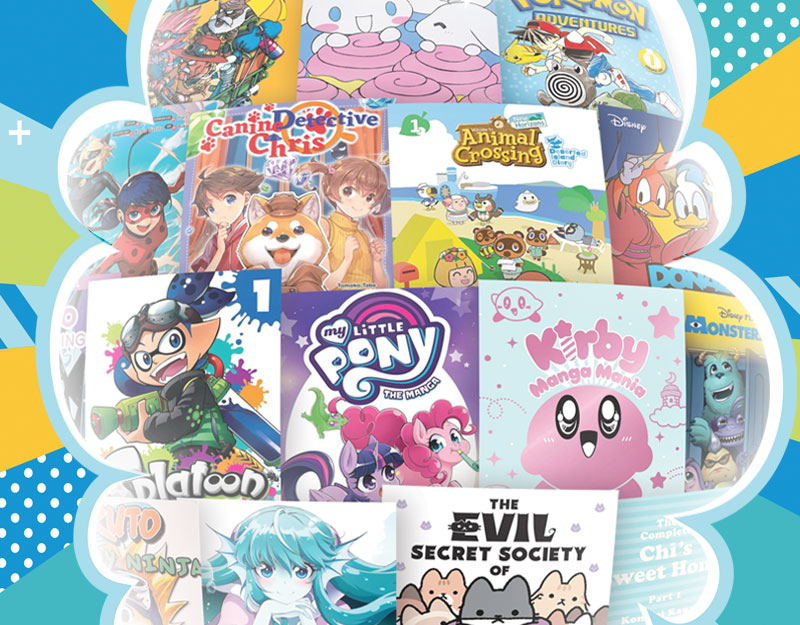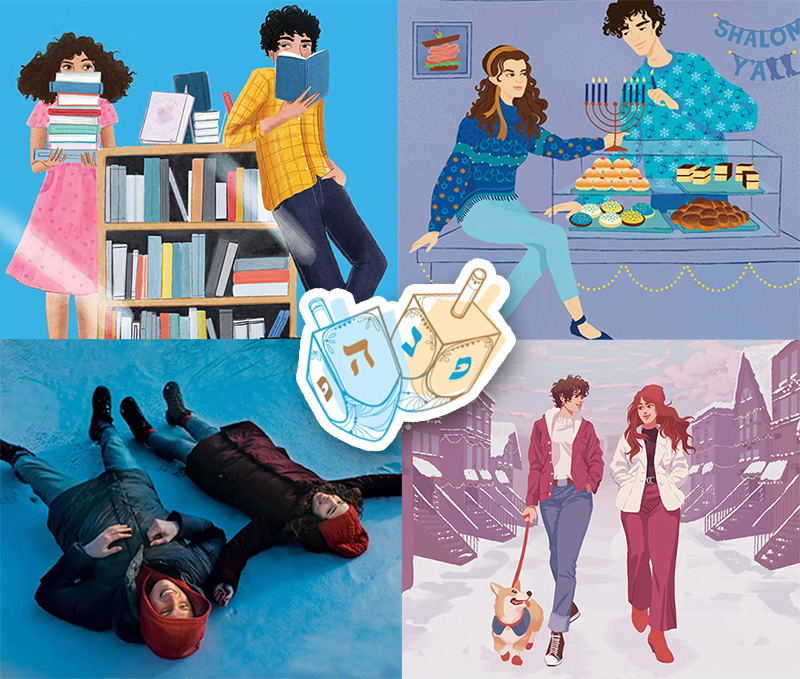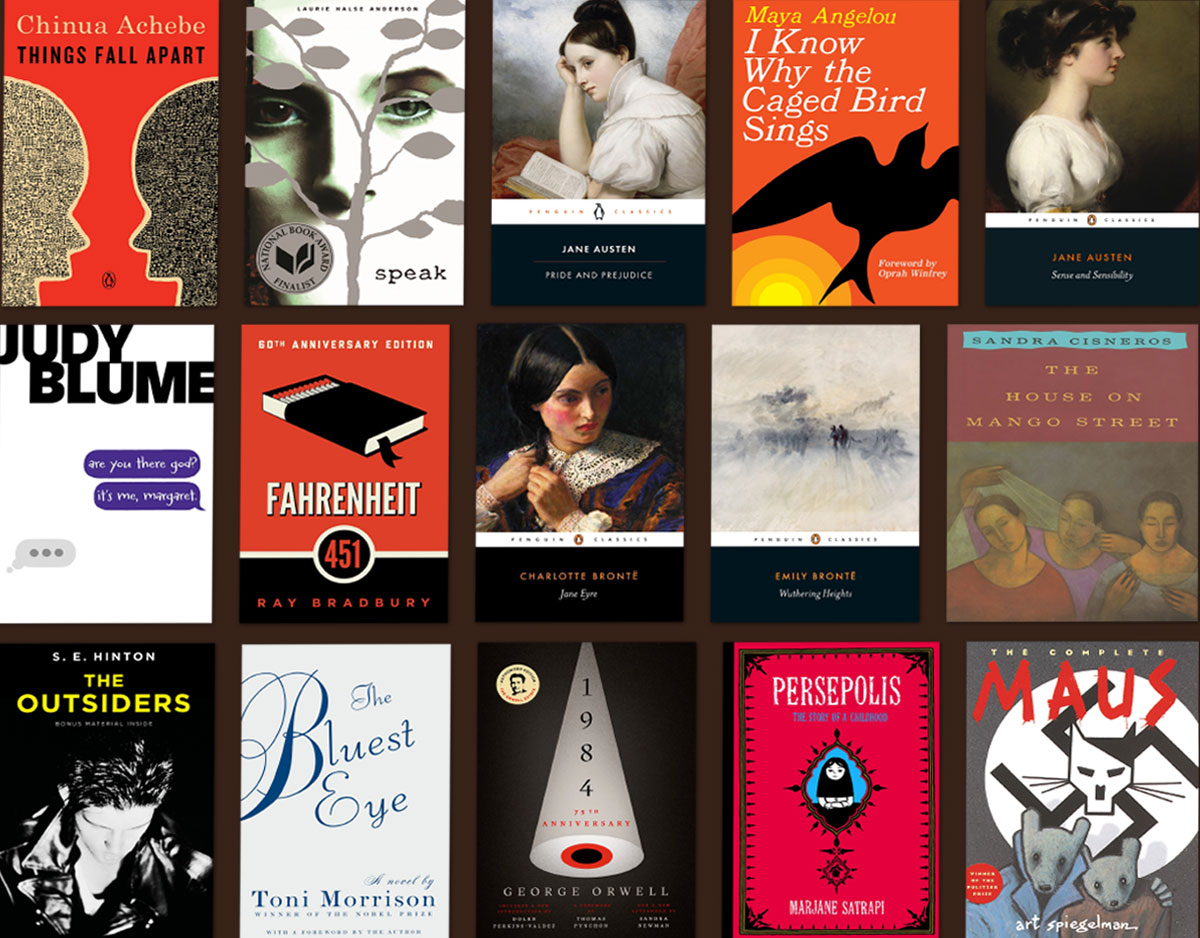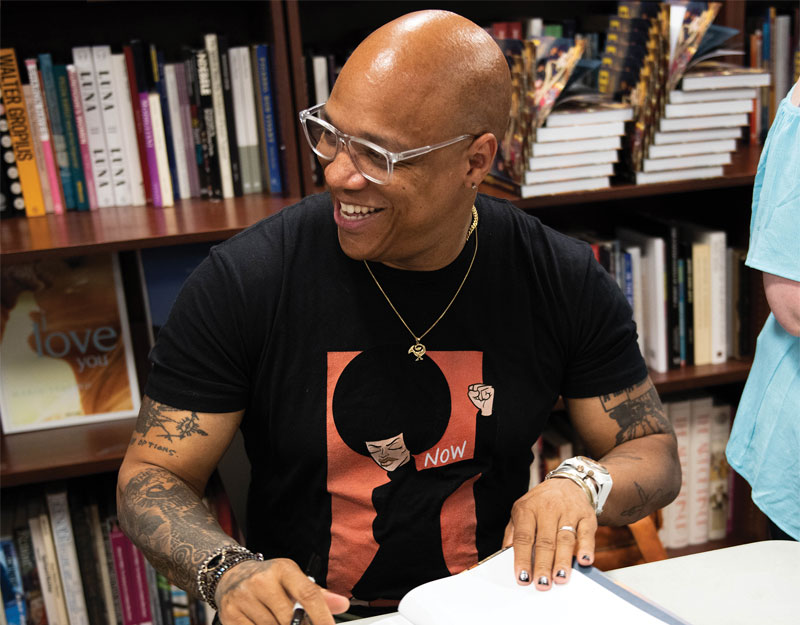Stowaway With Me: A Talk With Author John David Anderson
Okay. So remember yesterday when I kept going on and on about how shapeshifters were the big trend of 2021 in children’s middle grade fiction? Welp, I changed my mind. Today I think that the true trend is . . . stowaways. Again, this is all sounding very pandemic-inspired. Kids have been trapped in their homes for months on edge so what could be more imaginative and inspiring than a story about a child going off to the farthest reaches of space? And yes, I grant that I’m following up one science fiction novel interview with another this week, but when you hear the plot of John David Anderson’s new novel Stowaway, you’ll see that it’s wholly unique:
The beloved author of Posted and Ms. Bixby’s Last Day returns with the first book in a coming-of-age sci-fi duology about Leo, a kid trying to navigate the galaxy in order to save his family, and, possibly, the planet Earth.
When scientists discover a rare and mysterious mineral buried in the Earth’s crust, they have no idea that it just happens to be the most valuable substance in the entire universe. It’s not long before aliens show up to our little corner of the galaxy offering a promise of protection, some fabulous new technology, and entry into their intergalactic coalition, all in exchange for this precious resource. A material so precious that other alien forces are willing to start a war over it. A war that soon makes its way to Earth.
Leo knows this all too well. His mother was killed in one such attack, and soon after, his father, a Coalition scientist, decides it would be best for them to leave Earth behind. It’s on this expedition that their ship is attacked, Leo’s father is kidnapped, and Leo and his brother are stranded in the middle of space. The only chance they have is for Leo to stow away on a strange ship of mercenary space pirates bound for who knows where and beg the captain to help him find his father.
But the road is dangerous, and pirates, of course, only look out for themselves. Leo must decide who to trust as he tries to stay alive and save his family, even as he comes to understand that there aren’t many people, human or alien, that he can count on in this brave new universe.
Betsy Bird: Dave! Thank you so much for joining me today!

John David Anderson: Hey there, Betsy! Thanks for having me.
BB: I should admit that I first got interested in this book when I heard a fellow librarian describe it to me as reading, “like a greatest hits of all sci-fi: it has elements of Star Wars, Star Trek, The Mandlorian, the Expanse, Solo… all mixed with Treasure Island. It shouldn’t work, but somehow it really does.” So spill the beans, man. How does one come up with a story that has librarians waxing so eloquently about it? What’s the Stowaway origin story?
ADVERTISEMENT
ADVERTISEMENT
JDA: I love your fellow librarian! Seriously those are some of my favorite sci-fi stories/universes, and I’d be lying if I said the sources of inspiration for Stowaway weren’t embedded at an early age. I was a Star Wars junkie as a kid. Close Encounters and E.T. segued into Arthur C. Clarke, Isaac Asimov, and Madeleine L’Engle, and my love for SF carried over into adulthood with Battlestar Galactica and Guardians of the Galaxy (not to mention continuing to grok great books).
Because of this, I’ve always wanted to try my hand at the genre—to see what my brain would do if I let it romp through a galactic playground—and it was a blast (literally—lots of things blow up in the book). Also, as an author of middle-grade, coming-of-age stories, I thought it would be cool to use that huge backdrop as a way for my young hero to really question what he’s been taught, not just about the world, but about thousands of worlds and humanity’s place among them. It’s difficult enough discovering who you are and what you believe in under normal circumstances. Harder still when you are trapped on a ship with a band of space pirates who are, themselves, caught up in a war between advanced alien species vying for control of your home planet. Sci-fi lets you build a really big world, but in that world you can still tell a very personal story. Leo struggles with feelings of grief and alienation, and he is disillusioned by what he sees. I think a lot of young readers can relate to that—even if they haven’t been attacked by laser-toting patrol bots.

BB: For readers primarily familiar with your realistic fiction titles like Posted, Ms. Bixby’s Last Day, or last year’s One Last Shot, they’re going to think that this book is a departure. But you’re also the same fellow who created Insert Coin to Continue, The Dungeoneers, Sidekicked, and more fantasy/science fiction fare. Heck, your website even slots the two types of books on top of one another. When you first alternated between genres, did you receive any pushback? Do folks ever try to pigeonhole you as a certain kind of writer?
JDA: Pigeons are scary. Holes too. Unless they are doughnut holes. I would fight a hundred pigeons over a doughnut hole.
I probably should have received some pushback. Thankfully I’m blessed to have an editor and publisher who lets me try new things, and awesome readers who are willing to go on an adventure with me regardless of the destination. Working in different genres keeps me fresh and engaged, but it also provides new learning curves, new challenges, new tropes and archetypes to play with. I think the writing process is one of discovery and experimentation, and I love opening a new box of goodies to tinker around with (I get to use spaceships? And pirates? Sweet!). Of course, at the end of the day, the goal is just to tell a good story, whether it has fairies or villains or teachers or trolls—and there are plenty of thematic threads that tie my work together that I continue to come back to regardless of the genre.
The other (and equally truthful) answer is that I really have no idea what I’m doing, that I’m still floundering around trying to find something that I’m good at or that gets turned into a popular Netflix television series. Till then, it’s back to the lab.
BB: Let’s talk influences. You have a book set in space. So who are your science fiction heroes? What did you read or watch growing up? Or even right now?
JDA: I mentioned a few already. I’d certainly be remiss not to mention Douglas Adams, who had a huge impact on my choice to pursue writing as a teen and who taught me that humor is one of a writer’s greatest tools (and humanity’s greatest defense mechanism). There are definitely traces of Adams in Stowaway (I’m looking at you, Skits). I’ve read my share of great science-fiction, from Atwood to Bradbury to Octavia Butler all the way up to N.K. Jemisin and Andy Weir, but I also saw a ton of cheesy sci-fi movies in the 80s as well (Ice Pirates, Last Starfighter, Tron), which no doubt had an impact. Those, combined with my love of Star Wars and an equal passion for fantasy, are probably what compelled me to write a space opera (which Stowaway definitely is) rather than try and tackle anything in the hard-core sci-fi vein. That and I really don’t get physics.
As far as science fiction heroes? I’m going to go with Drax, Katniss, Zaphod Beeblebrox, Ripley from Aliens, and Han Solo. Who’s scruffy lookin’?

BB: The children’s book industry is just rife with “everybody knows” information. For example, “everybody knows” that science fiction titles for kids don’t sell (never mind Star Wars, Guardians of the Galaxy, etc.). People who spout this knowledge apparently think that adult science fiction lovers sprout fully formed like Athena from the head of Zeus. You’ve done more than your share of science fiction before. What’s your own perception of the market?
I think “everybody” probably has access to spreadsheets of data that I don’t, but I also don’t know what target “everybody” is aiming for. I honestly believe there is a horde of imaginative young readers out there (like myself at age ten or thirteen) who love sci-fi. They read Zita the Spacegirl and The Wild Robot. They’ve seen all the Maze Runner movies. Their eyes blow up like fireworks when they get to that one part in The Giver. I think what science-fiction does better than any genre is provide a sneaky, backdoor, often allegorical—or at least metaphorical—approach to commenting on the concerns of the present day. Young readers enjoy getting whisked off to galaxies far, far away, but the lasting impact of a good sci-fi story is its ability to somehow also mirror the reader’s current social, emotional, and political realities. I think a lot of young readers appreciate that—the ability to both escape and reflect.
ADVERTISEMENT
ADVERTISEMENT
Of course, my perception of any market in the publishing industry is skewed. No doubt you can measure a book’s success by sales figures or starred reviews or Amazon rating. But you can also measure it by the look on a kid’s face when he comes up to you at a school visit and tells you about his favorite part or the drawing of a spaceship they send to you in the mail. I know I personally would have a lot less joy in my childhood and teenage years if not for the great sci-fi stories I was raised on.
BB: Would you say that STOWAWAY is a stand alone title or part of a larger series?
JDA: This one’s easy. It is intended to be part of a duology. Homebound, the sequel and thrilling conclusion, should come to a galaxy near you sometime next year. I do not intend to leave Leo hanging.
BB: Is there a kind of book you’d like to try your hand at but haven’t yet? Something different from anything you’ve done before?
JDA: See the answer to the question that follows, but yes. I would love to publish some poetry or team up with some talented artist to produce a graphic novel (I actually have drafts of both of these). I could even imagine myself writing some quirky non-fiction. I’ve never written historical fiction—I find research enriching but intimidating—but I’d like to try it at some point. The only thing I know for sure is that I’m going to stick in the middle-grade sphere for a while. I’m deathly afraid of becoming a grown-up and I’m hoping writing books for young readers will keep that from happening.

BB: And finally, what are you working on next?
JDA: In 2022 I have my first scary story coming out. Riley’s Ghost is a haunted house story, except the house is Riley’s middle school, and the horrors that haunt her are both of a supernatural and a painfully real variety. It’s a novel about friendships and bullying and self-discovery that uses a the nail-biting, chill-your-blood conventions of the genre to explore the relationship between memory, guilt, and empathy. I’m really excited for it.
After that, hopefully the sequel to Stowaway. After that, who knows. I haven’t tried writing an Elizabethan drama yet…
While we wait the arrival of that drama, I just want to thank Dave, Lena Reilly, and all the folks at Harper Collins that helped make this happen.
Stowaway is available August 3rd in bookstores and libraries everywhere.
Filed under: Interviews
About Betsy Bird
Betsy Bird is currently the Collection Development Manager of the Evanston Public Library system and a former Materials Specialist for New York Public Library. She has served on Newbery, written for Horn Book, and has done other lovely little things that she'd love to tell you about but that she's sure you'd find more interesting to hear of in person. Her opinions are her own and do not reflect those of EPL, SLJ, or any of the other acronyms you might be able to name. Follow her on Twitter: @fuseeight.
ADVERTISEMENT
ADVERTISEMENT
SLJ Blog Network
Happy Poem in Your Pocket Day!
More Geronimo Stilton Graphic Novels Coming from Papercutz | News
Parsing Religion in Public Schools
Environmental Mystery for Middle Grade Readers, a guest post by Rae Chalmers
ADVERTISEMENT



